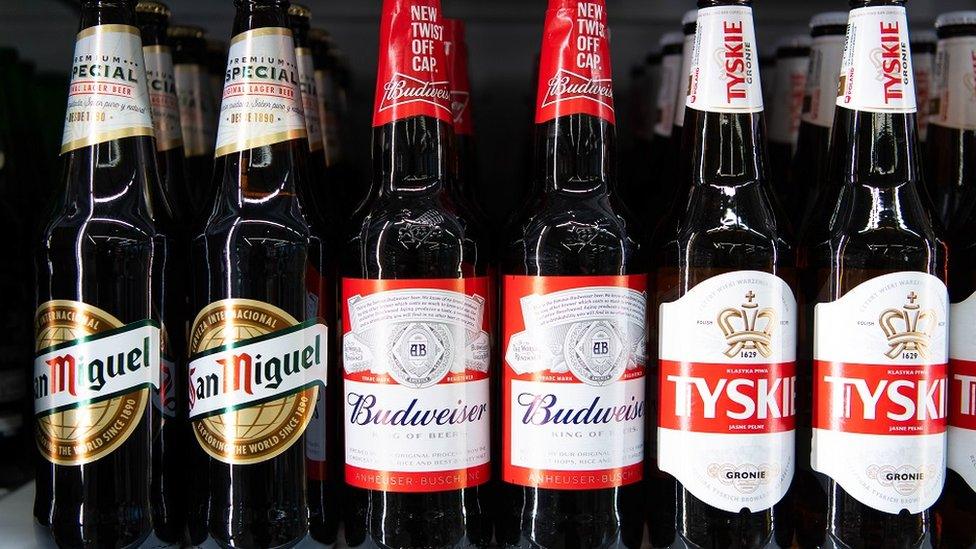Minimum pricing averts alcohol deaths, study claims
- Published
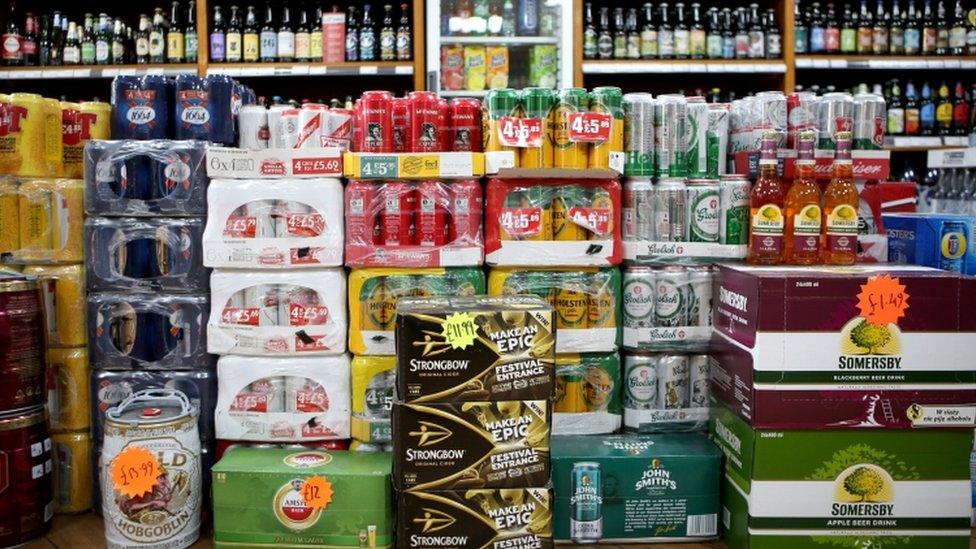
A new report suggests the introduction of minimum unit pricing (MUP) in Scotland has led to fewer alcohol-related deaths compared to England.
MUP started in 2018 and put a minimum charge of 50p on each unit of alcohol.
The study, published in the Lancet, external, estimated that following the strategy 156 deaths a year were averted.
Before the policy, Scotland had twice as many deaths (per 100,000) than England but after MUP's introduction the gap between the two has reduced.
Researchers tried to account for factors such as Covid and the complex causes of alcohol deaths when comparing data between Scotland and England, which does not have minimum unit pricing.
This has led to the study's best estimate that, between May 2018 and December 2020, there was a "significant" 13.4% reduction in the types of deaths caused by heavy drinking in Scotland.
This estimate came from researchers comparing Scottish alcohol deaths to an estimate, using data from England, of the deaths that would have occurred had the MUP legislation not been implemented.
Deprived areas
Researchers also found that reductions in heavy drinking deaths were greatest for men and for those living in the 40% most deprived areas of Scotland.
The study by researchers from Public Health Scotland (PHS), the University of Glasgow and the University of Queensland, Australia includes estimates of deaths averted as a result of the flagship MUP policy.
The actual recorded number of alcohol-specific deaths in Scotland has generally been rising since 2012.
A full evaluation of MUP, which will also consider consumption levels and the economic impact, is due to be published later in the year.
Dr Grant Wyper, public health intelligence adviser at PHS, said: "The findings highlight that the largest reductions were found for males, and for those living in the 40% most deprived areas, groups which are known to experience disproportionally high levels of alcohol health harms in Scotland.
"We know that those living in the most socioeconomically deprived areas in Scotland experience alcohol-specific death rates more than five times higher compared to those living in the least deprived areas.
"The results published are therefore very encouraging in addressing this inequality, and the overall scale of preventable harm which affects far too many people."
The report authors acknowledged some limitations to the study, including that there was an impact on hospital capacity and attendance during the Covid-19 pandemic.
The Scottish Parliament must vote before 1 May next year on whether or not MUP will continue.
'I'll never drink again'
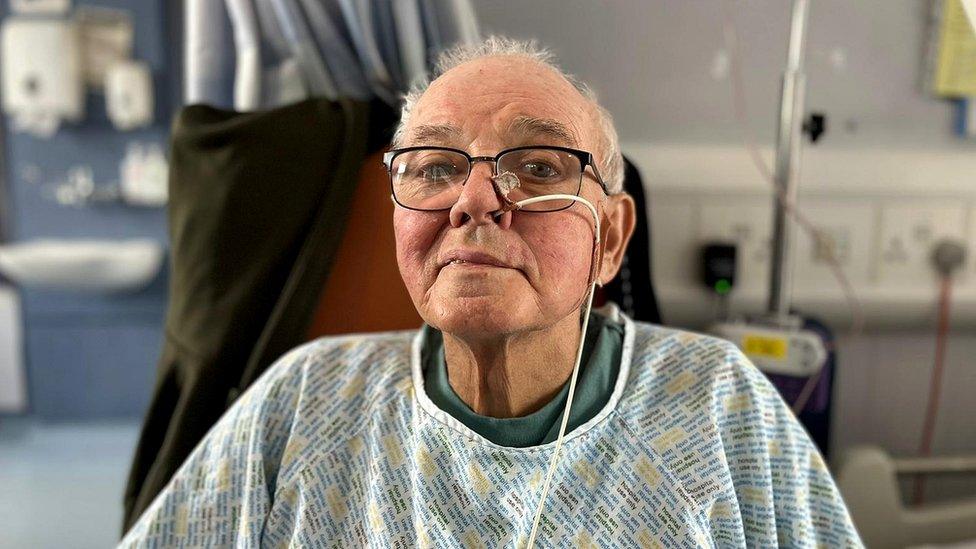
George Brown had to have a liver transplant after his drinking got out of control during the Covid lockdown
George Brown spent the Covid lockdown shielding because he suffers from Crohn's disease and it was in this period he started drinking vodka heavily.
"It creeps up on you," explains George.
"I was drinking every day and then all of a sudden I got up one morning and I was all yellow, and it got worse."
Mr Brown had a liver transplant earlier this year and is now recovering in Glasgow Royal Infirmary, looking forward to spending more time with his four children and 11 grandchildren.
"I've got all that to live for so I'm going to make the most of it," he added.
"I should have known better but I'll never drink again."


It would be tricky to roll out MUP to half of the country (chosen at random) in order to get perfect scientific proof.
So the researchers did the next best thing: carefully compare countries with different policies.
No obvious explanation other than MUP jumped out of the data.
And they saw a clear difference between the nations in deaths due solely to long-term heavy drinking.
But they didn't quite see a difference in hospital admissions or in deaths partially due to alcohol, like liver cirrhosis.
And so this study is evidence for the effect of MUP, rather than proof.
But policy decisions can't wait for perfect data - they have to be made with the best available evidence.

A previous PHS report said there had been a 3% net reduction in sales per adult in Scotland's shops since MUP was introduced.
The biggest reductions were in the sales of cider, with increases in the sales of wine and fortified wine.
A separate study found drinkers who suffered the worst effects of alcoholism did not change their habits as a result of MUP.
Dr Alastair MacGilchrist, chairman of the expert clinician partnership at Scottish Health Action on Alcohol Problems, said: "Minimum unit pricing was introduced to save lives and this latest report shows it is doing just that."
Pressing health challenges
National Records of Scotland data, external shows recorded alcohol-related deaths have generally risen since 2012, though they did drop in 2019.
In 2021, alcohol-specific deaths rose by 5% to 1,245 - part of a UK-wide trend linked to increased heavy drinking patterns during the Covid pandemic.
An Office for National Statistics report issued in December 2021, external contained figures for alcohol-specific deaths in the four UK nations. They included;
2001 - England had 8.9 deaths per 100,000 people and Scotland had 26.1
2018 (MUP introduced on 1 May) - England had 10.1 deaths per 100,000 people and Scotland had 20.8
2020 - England had 13 deaths per 100,000 people and Scotland had 21.5
Scotland's Public Health Minister Maree Todd said this latest study "further underlines the value of our world-leading minimum unit pricing policy which has helped reduce alcohol sales to their lowest on record".
She added: "We're determined to do all we can to reduce alcohol-related harm which is one of the most pressing public health challenges that we face in Scotland."
- Published22 November 2022
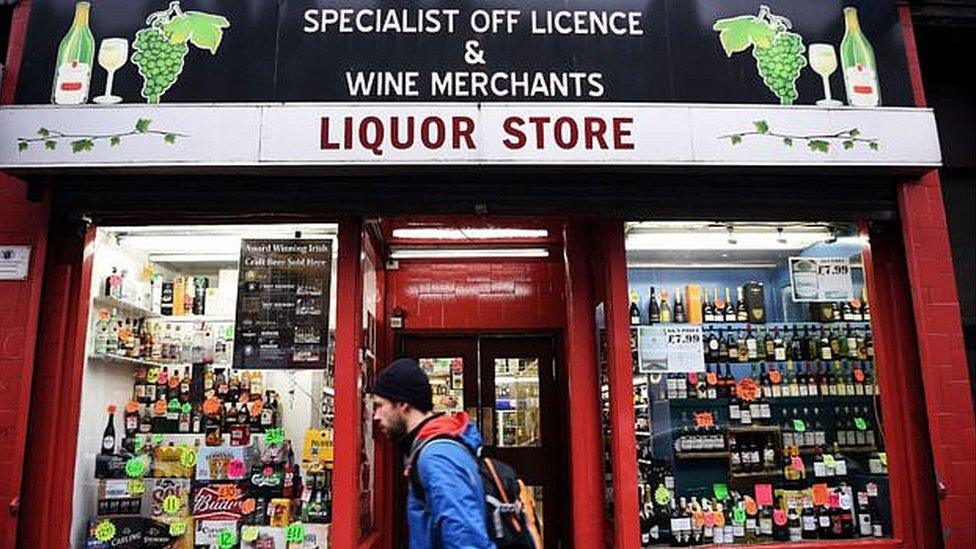
- Published15 November 2022

- Published31 January 2023
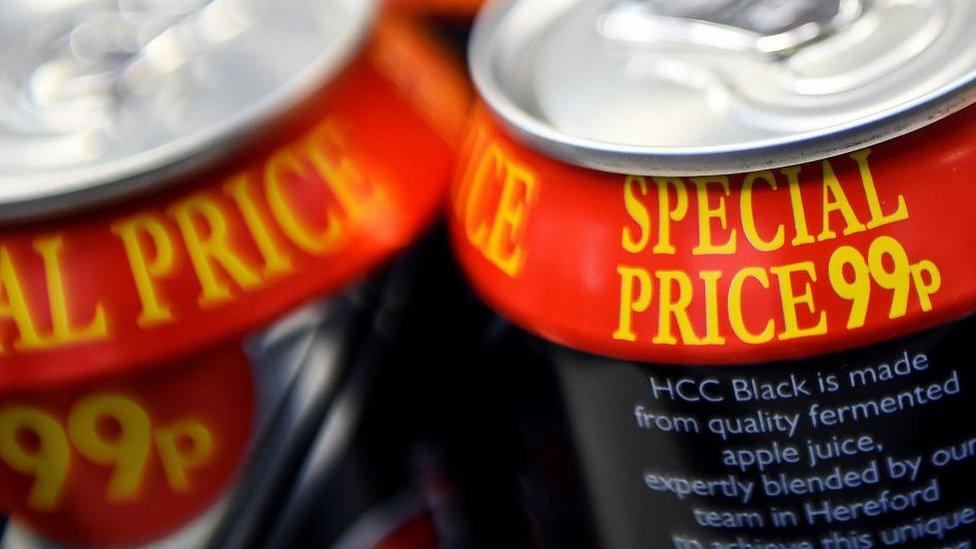
- Published7 June 2022
